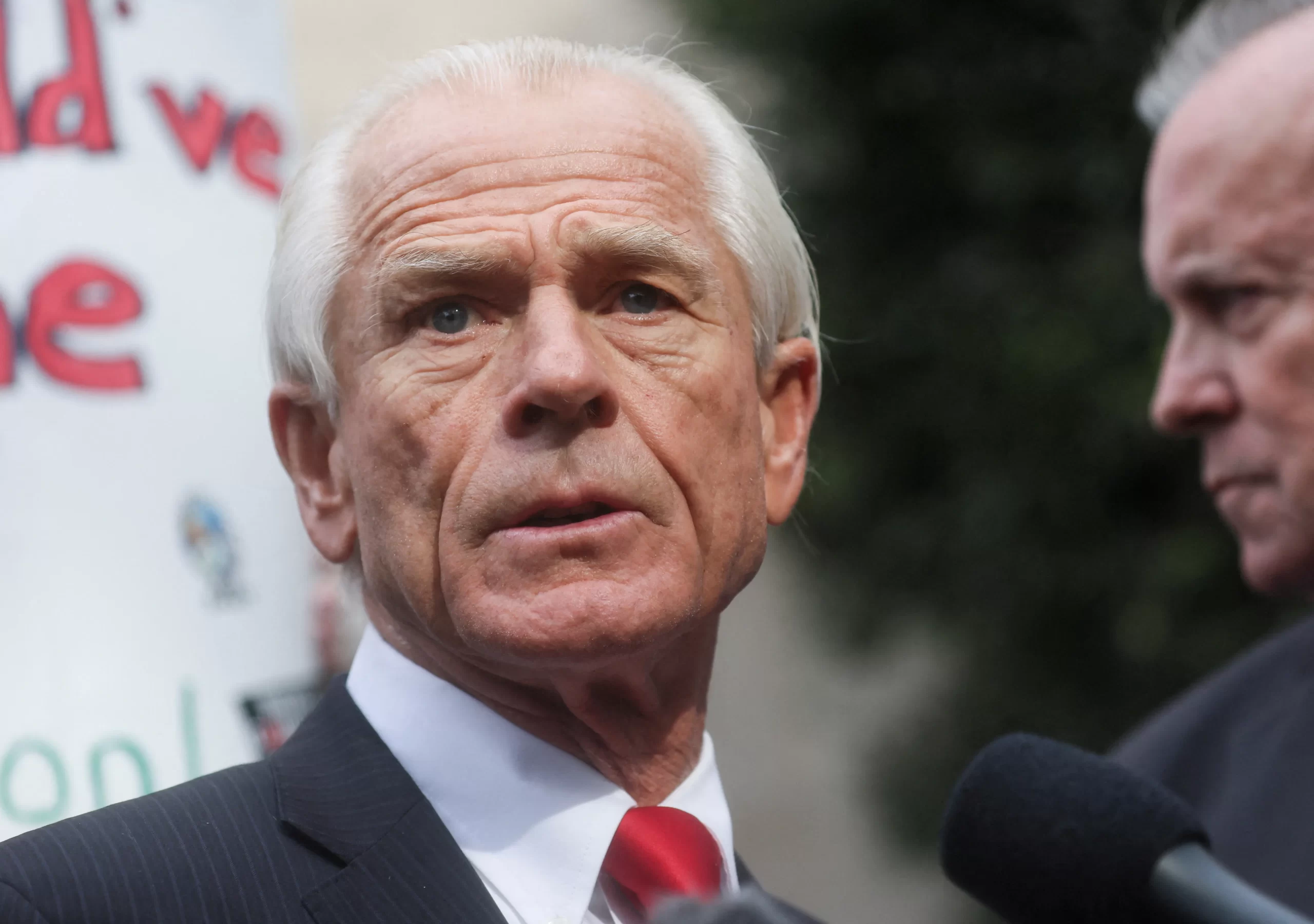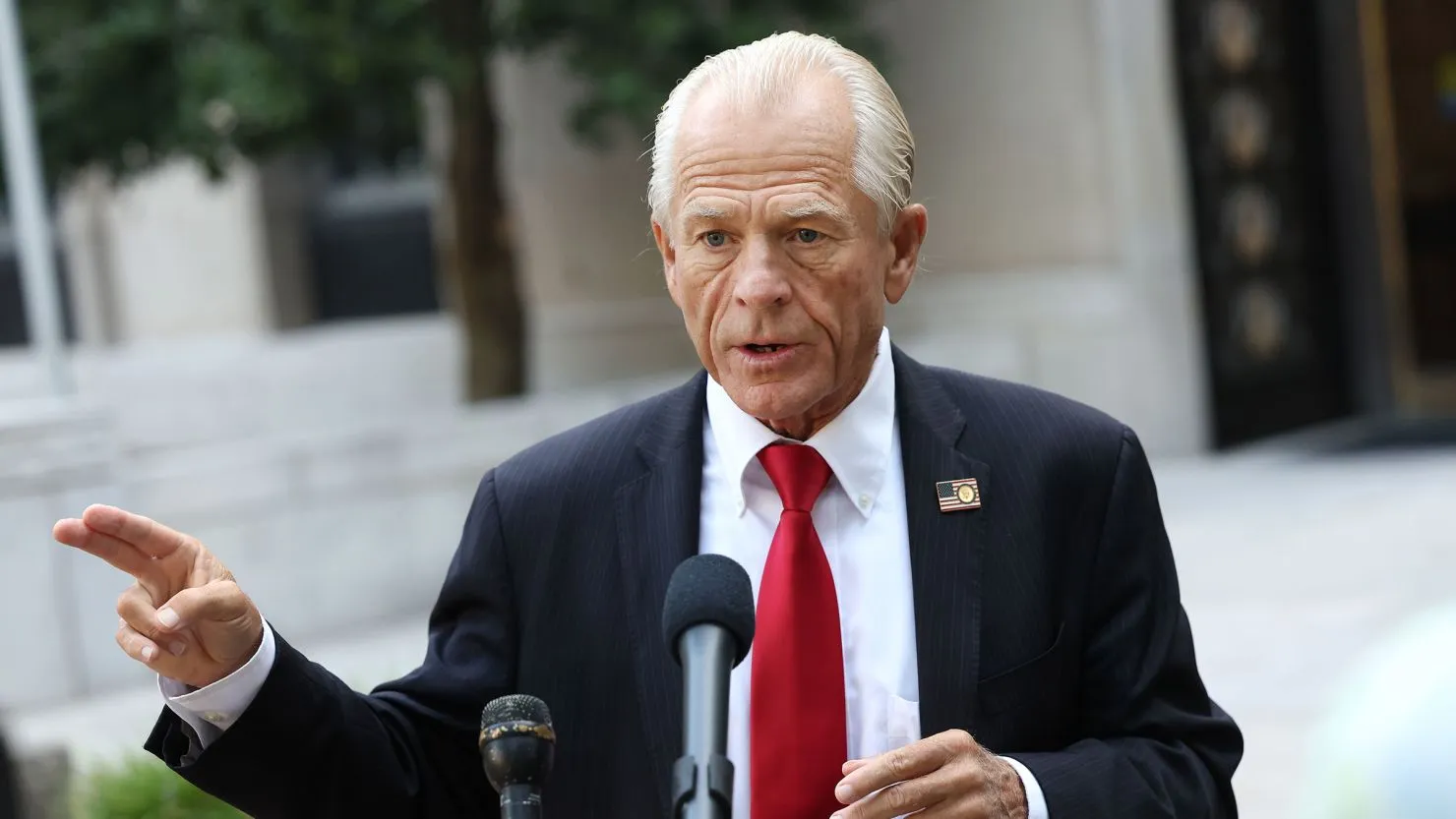On Thursday, a federal judge in Washington, DC, is poised to deliver a sentencing verdict for Peter Navarro, a former trade adviser to Donald Trump. This sentencing follows Navarro’s refusal to comply with a subpoena linked to the congressional investigation into the January 6, 2021, US Capitol attack.
Having been convicted in September on two counts of contempt of Congress for his failure to work with a subpoena from the House select committee investigating the attack, Navarro faces a mandatory minimum sentence of one month in prison for each count.
However, prosecutors are urging US District Judge Amit Mehta to go further, recommending a sentence of six months for each count to be served concurrently and an additional $200,000 fine.
Prosecutors argue that a one-month sentence per count is insufficient, drawing parallels between Navarro’s defiance of subpoenas and the behavior of some participants in the Capitol riot.

Former Trump adviser Navarro (Credits: Reuters)
They contend that Navarro’s actions reflected a prioritization of politics over the nation, with an allegiance to former President Donald Trump taking precedence over the rule of law.
Should the judge follow the prosecution’s recommendation, Navarro’s conviction and potential sentence would represent another triumph for the now-disbanded House January 6 committee, underscoring the Justice Department’s unwavering commitment to pursuing individuals who resist cooperation.
Comparisons can be drawn with the case of former Trump adviser Steve Bannon, who was convicted in 2022 on two contempt counts and received a four-month prison sentence.
Bannon’s sentence is currently under appeal, adding an added layer of complexity to the legal landscape surrounding individuals associated with the Capitol attack.
Navarro’s legal team is seeking a more lenient outcome in response to the impending sentencing. They propose no more than six months of probation for each count and have requested a pause in sentencing as they appeal the conviction.
Throughout the trial, Navarro maintained that his non-compliance was directed by Trump, who purportedly invoked executive privilege – a claim that Judge Mehta firmly rejected.
The trial was swift, concluding in less than a day. Prosecutors presented three witnesses, all former staff members of the House January 6 committee.
Their testimony aimed to establish that the committee had valid reasons for subpoenaing Navarro and that he was well-informed about its demands.
Prosecutor Elizabeth Aloi underscored Navarro’s knowledge of a plan to disrupt Congress activities on January 6. She highlighted that Navarro willingly shared this information in public remarks but refused to divulge it to the House committee.
Navarro’s defense, opting not to present any witnesses, focused on challenging the aspect of the contempt charge requiring a demonstration that Navarro’s non-compliance was willful and deliberate.
Navarro’s insistence that he was acting under Trump’s directive, invoking executive privilege, was not accepted by Judge Mehta.
Prior to the trial, Mehta concluded that Navarro had failed to provide sufficient evidence that Trump had formally asserted a privilege or testimonial immunity, allowing his former aide to abstain from answering the committee’s questions.
As Navarro contemplates the potential ramifications of his sentence, his attorneys express intentions to address several issues on appeal. They assert that the appeal will clarify the requirements for a former President to invoke executive privilege concerning senior advisers.
The federal appeals court in DC is reviewing Bannon’s appeal as well, scrutinizing whether the trial court judge erred in rejecting Bannon’s assertion of executive privilege.
The legal saga surrounding figures associated with the January 6 attack continues to unfold, raising questions about the limits of executive privilege and the consequences for non-compliance with congressional investigations.























